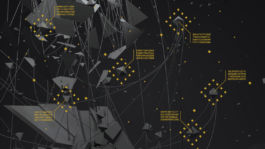
Thursday, July 23, 2020, 15:30, online
Contribution by Cornelia Lund for the Painel 5: CULTURA DAS IMAGENS E IMAGENS DA CULTURA | Panel 5: CULTURE OF IMAGES AND IMAGES OF CULTURE
Besides the Screen 2020 @ ISMAI Conference — Materialities, networks, remediation, migration
In Return: a decolonial approach to fashion and hairstyles in music videos by afrodiasporic re-pats
When allowed to unfold their experimental laboratory character as defined by Lev Manovich, music videos can develop propositions of aesthetic, cultural, and societal relevance, instead of being simple promotional tools for pop music and musicians. In the African context, music video undoubtedly plays a major role as a medium that allows to playfully criticise established patterns of thought and social models, mainly through the way in which music, musicians, fashion, and hairstyles are presented. As such, it is part of a larger movement bridging the African continent and the diaspora that is trying to figure out how African societies wish to define themselves in the present and for the future. This movement is supported by the growing access to production tools and the Internet on the African continent, which, through a rapid flux of information and exchange of ideas, spans the continent and the diaspora in a shared cultural space in unprecedented ways. This paper proposes to investigate how music videos function in this shared cultural space as a means of dissemination and exchange of ideas, focusing on three examples of videos by members of the African diaspora in different countries: Baloji (Belgium), Sampa the Great (Australia), and Seinabo Sey (Sweden). Using a decolonial approach, the analysis will concentrate especially on the role of fashion and Afro hair(styles) in the videos these three artists made as part of their quest for cultural self-definition on their journeys back to the African countries their families have migrated from.
Besides the Screen 2020 @ ISMAI Conference — Materialities, networks, remediation, migration
The conference Besides the Screen 2020 @ ISMAI (Instituto Universitário da Maia), participates in a series of events celebrating ten years of the Besides the Screen research network throughout 2020. Besides the Screen is an international research network on the subject of experimental audiovisual media. It aims to reconfigure the field of screen studies by refocusing it on the seemingly secondary objects, processes, and practices that exist ‘besides’ cinema. Besides the Screen also means to promote an open and horizontal academic environment, favouring practice-based approaches to research and artistic collaborations. Over these ten years, the conference has had as its themes: graphic intelligences and algorithmic fictions; vaults, archives, clouds and platforms; unfolding images, VR, volumetric filmmaking and spatial control; Curatorial methods and materials; piracy and distribution, among others.
More information: https://besidesthescreen.com/besides-the-screen-2020-conference/#content